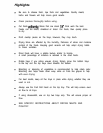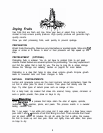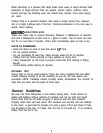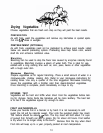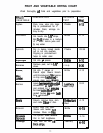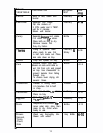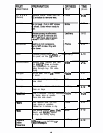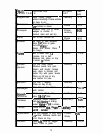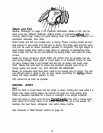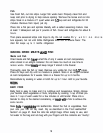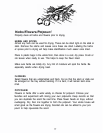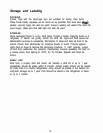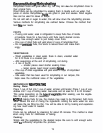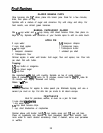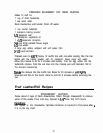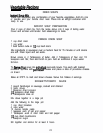
Meats and Fish
Review “Warnings” on page 3 for important information. Meats or fish can be
dried using two different methods. Jerking meats, or processing
prior
cooking, yields tough, chewy but great tasting meat. The meats are soaked in a
salt-based marinade, then dried.
Dried meats and fish are cooked prior to drying. Proper cooking should kill bac-
teria present in raw meats and fish prior to drying. The dried meat and fish prod-
ucts can be used for stews, sandwich spreads, or stroganoff. The light weight of
dried meats makes them ideal to take along on camping or backpacking trips.
Dried meats and fish can be reconstituted by adding water, then used for many
recipes.
Meats for drying should be LEAN WITH AS LITTLE FAT as possible. Fat will
spoil during storage. Flank steak or round steak is an excellent choice for mak-
ing jerky. Jerked meat is not cooked and will end up chewy and tough once
dried.
Meats that work best for stews and sandwich spreads need to be of
choice quality and tender. ALL FAT SHOULD BE REMOVED.
Meats, for purposes other than jerky, need to be cooked prior to drying. You can
use leftover roast or steak to dry
turkey will make excellent snack
, or cook meats specifically for
Leftover
s for later.
Fish should be as fresh as possible.
MAKING JERKY
Beef
Slice the flank or round steak into thin strips or slices. Cutting the meat while it is
frozen may make cutting easier. Cut across the grain for more tender jerky.
Place in prepared marinade for 3 hours or overnight in an airtight container.
Place the strips or slices onto the tray.
Dry until it cracks when
bent, about 8-15 hours. Store in an airtight container for up to two weeks. To
maintain the best flavor, refrigerate. Use within three months.
See marinade in “Meat Recipe” section on page 24.
15



